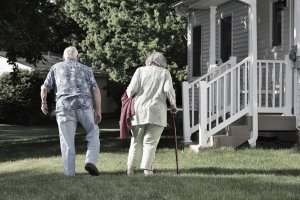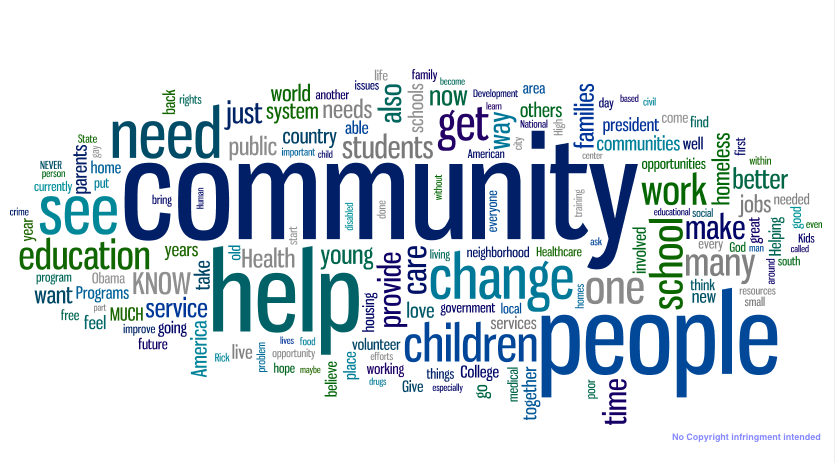Aging in Place – Charlotte Today
 Aging in Place – Charlotte Today
Aging in Place – Charlotte Today
AGING IN PLACE. SURE, easy to do – no sweat, right? Just live in your home forever. Well, the reality is that there’s more to it than meets the eye. Aging in place is a decision-making process. We explore more on Charlotte Today. After consulting with family and experts – like certified aging in place specialists – you may decide you can retrofit your home and safely stay there. However, you have options. And it doesn’t mean a direct trip to assisted living. At the end of the day, be one of the people who don’t have to say “I never thought about that.” Think about it now.
Self Care – Taking Care of a Loved While Taking Care of Yourself!
Self Care – How to Take Care of Your Aging Loved Ones with the Support You Need
(sponsored post)
Are you practicing self care? Did you know that a quarter of those who take care of their loved ones are millennials? And 15% of them are caring for someone with Alzheimer’s or dementia. The average age of those caregivers is 27 and they spend approximately 21 hours a week caring for someone. That is usually on top of the hours they spend working, doing housework, and caring for other loved ones like children. Taking care of your loved ones can be a stressful job and you may need help and not even realize it. If you are feeling overwhelmed or depressed, have had any of the signs of anxiety or depression, or just want to talk to someone, you can contact https://www.betterhelp.com/therapists/ to talk to a licensed professional.
Expenses
Caregiving is not only stressful, it can be costly as well. Sometimes we have to pay others to help take care of our loved one while we work or give up some of our hours at work, which can also cost us money. Many people who need help do not seek it because they are afraid of the cost. Interestingly, online therapy or counseling is the least expensive mental health care you can get. In fact, with BetterHelp.com, you can talk to a licensed professional anytime of the day or night, as often as you like for only $40 to $70 per week. Compare that to the $250 to $450 per hour that traditional psychologists or psychiatrists charge.
Self Care – Taking Care of You
There are some things that you need to know about taking care of your elderly loved ones. For example, you need to set goals as well as boundaries to keep yourself in good health, physically and mentally. Do not let caring for your parent or other loved one make you sick because that will affect both of you. Who will take care of mom or dad if you fall ill? You are not alone. In fact, almost 18 million people in the United States alone are taking care of someone aged 65 or older. And not only are you not alone in caring for an elderly loved one, you are not alone in being stressed or depressed.
Talk to Someone
We know that taking care of your loved ones is important to you and that you would not have it any other way. But you have to make sure that you are taking care of yourself too. Does your day include caring for yourself, your kids, your spouse, and one of both of your parents? Just taking care of yourself can be overwhelming at times so having to take care of everyone else is a huge amount of responsibility. There is nothing wrong with getting help for yourself if you need it. And let’s face it, we all need help sometimes. If you are feeling overwhelmed or stressed out or are having any other signs of depression or anxiety, it is essential that you get some help so do not be afraid to ask for it. Practice self care.
Editor’s Note – the information presented is NOT medical advice. Please always consult with your physician when seeking diagnosis and treatment.
7 Ways to Stay Involved in Your Community as You Age
7 Ways to Stay Involved in Your Community as You Age
Withdrawing from your community is an unfortunate but inevitable part of aging. As you become less mobile and more prone to illness it’s only natural that you might not be as sociable as you once were, but that doesn’t mean you have to completely separate yourself from the community that you live and have grown up around. In this article, we show you those 7 activities or ways you can stay involved in the community as you age. Read on.
Maintaining social connections is linked with happiness levels, overall well-being and even physical strength, so keeping those community ties as long as possible will literally keep you healthier and feeling better.
Getting involved is, however, not easy. You need to get an activity to connect you with the community to boost your social skills and expand your circle of friends.
- Stay Involved with Knitting
As you age, you’ll begin to feel a little difficulty with your hand to eye coordination skills. Knitting will not only help you suppress this complication but also keep you involved in the community. It will challenge your brain and help you slash off the chances of getting mild cognitive impairment. Knitting will also keep you busy and calm, presenting you with a clever way of meditating. To be more important and involved in the community, you can offer to knit hats and blankets for babies under community hospital programs which help underserved mothers and babies with such essential items.
Jane Byrne, community lead at FirstCare knows a little about why community is so important for the older generation. She says that “when studies have measured well-being of different elderly populations, the results have been clear. Those who stay more involved with their community have a more positive outlook on life and feel like they have more to live for even when they have severe illness in their lives”.
- Provide family assistance
By providing family assistance, you also keep your social connections active even into your senior years. It will help you stave off any symptoms of depression, and keep you even more active. Running around with kids will also keep you happy, fill your time, and keep you physically fit. Studies show that playing with kids can help you suppress risks of mental and physical struggles due to feelings of being less important, and loneliness, etc.
- Get into gardening
When you get into gardening activities like planting flowers and pruning trees, you enhance your physical activity, which will boost your cardiovascular health, flexible coordination, and entire physical wellness. It will also keep your mind keep off troubles and physical pain so you can live a relaxed stress-free life. In keeping you involved in your community, gardening will also connect you with the people who love nature’s beauty. By connecting with other people who tend the flowers, you also get opportunities for more social connections with new people.
- Stay involved by Volunteering at your Continuing Care Retirement Community (CCRC)
THE CCRC usually has numerous open spots for volunteers to help them create useful programs and activities for senior living in the homes. By volunteering with the CCRC, you will gain a lot of new knowledge as you engage with other seniors.
You’ll also play a part in helping the community members who have their seniors enrolled in the homes and make new friends. It’s always a joy to know or get acknowledged by your people to improve another person’s life.
- Connecting with children in the community library
Children are ever active and curious, giving you the slimmest chances of getting bored when you’re around them. You can offer to read stories for them, among other activities. Reading stories for these children will not only help enhance their attention skills but also improve their behavior. Be sure to check with your community library to see if they need volunteers to help them lead such programs.
- Playing ‘brain’ games
Brain games, like board games and cards, will help you challenge the brain. They are also known to bring a lot of people together to spend time as they play. It will keep you connected with your family, and friends to ensure that you’re involved in the community. The brain games will also stimulate your brain to prevent you from symptoms of diseases like Alzheimer’s disease and dementia, among others.
- Volunteering in the community church
Volunteering in the local church will help you connect with the younger generation. This will help you share with them important life lessons as they also teach you how to view life in varied perspectives. This makes you feel that you still have plenty of time with a lot to give back to the community. You’ll also feel important to the society and ward off any feelings of isolation and depression etc.
The church will also help you find activities which fascinate and fill you so you can help them serve even more people.
Life is like an unending road. With each stage, we get fresh challenges which we need to overcome to keep stronger and going. Your community will be with you all the time, therefore getting involved in most community projects will also help you strengthen your social bonds.
Our Friday Song of the Week – Strangers in the Night
Our Friday Song of the Week – Strangers in the Night










